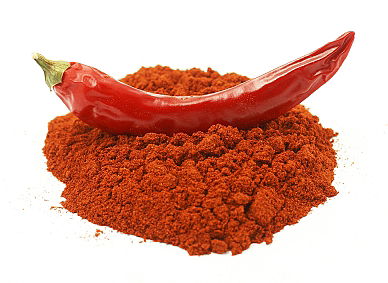Popular Articles
- Best Vitamins for Fibromyalgia Pain
- Anatrin Supplement Facts
- Herbal Treatment of Fibromyalgia
- Medications That May Interact with Anatrin
- Alternative Treatments for Fibromyalgia Pain
- Is Paleo the Best Diet for Fibromyalgia?
- 39 Signs and Symptoms of Fibromyalgia
- Omega-3 for Fibromyalgia
- 5 HTP and Fibromyalgia
- Fibromyalgia- Foods to Avoid
- More Articles ...
 Remedies for FibroIn This Article
There are numerous remedies for fibromyalgia that are reported to help. Four broad categories of fibromyalgia remedies are described below. Each category either has clinical proof as being effective or has empirical evidence for its use.
With over thirty- nine symptoms that have been identified as being associated with fibromyalgia, it is no wonder people search for remedies that help fibromyalgia. While nothing has been clinically proven to heal the disease, there are a number of fibromyalgia remedies that bring symptom relief for patients. Listed below are fibromyalgia remedies that either has scientific backing for their use or have plenty of empirical evidence that they work. Remedies for fibromyalgia #1: ExerciseExercise, including brisk walking for at least thirty minutes a day, yoga, qi gong, tai chi, Pilates, water aerobics, and strength training with weights, is very beneficial to the fibromyalgia patient. Web MD states that exercise helps keep muscles strong, helps to keep weight under control, and helps people with fibromyalgia become more active in other areas of their lives. Exercise helps to boost endorphins, the “happy” hormones which create positive moods, remove stress, and reduce anxiety and depression. Exercise acts as Nature’s tranquilizer by stimulating serotonin in the brain.
Exercise improves range-of-motion to painful muscles and joints, improves sleep, boosts energy levels, brings peaceful feelings, and strengthens bones. Remedies for fibromyalgia #2: SupplementsMagnesiumMagnesium, either in the form of magnesium malate or magnesium sulfate (Epsom salts), helps to reduce pain in aching muscles. Magnesium is very well documented in the scientific literature as an effective pain reliever for a variety of pain issues. The only negative report of its use is that an overdose of oral magnesium causes diarrhea in some people. When these people lowered the dose of magnesium, diarrhea resolved immediately.
The fibromyalgia patient soaks in the tub for at least thirty minutes. This allows the magnesium in the Epsom salts to be absorbed into the skin through the open pores. After a few weeks, pain and anxiety seem to be less, and sleep is easier to achieve. 5-HTPTryptophan is an amino acid the human body obtains from food which converts to 5-HTP. 5-HTP changes to serotonin, the neurotransmitter that regulates mood, anxiety, appetite, sleep, and the feeling of pain. Tryptophan used to be sold as a dietary supplement, but the FDA ordered it to be pulled off the market when a chemical called Peak X found in tryptophan was linked to a potentially fatal disease known as eosinophilic myalgia syndrome. 5-HTP is made from the seeds of an African herb called Griffonia simplicifolia. Trace amounts of Peak X are also present in 5-HTP, although EMS symptoms are only manifested at very high doses of 5-HTP. Caution is advised when using 5-HTP. Glucosamine and ChondroitinGlucosamine and chondroitin are two dietary supplements that are becoming popular among fibromyalgia patients. The two supplements help to reduce pain and increase strength in the joints. Glucosamine is often used by people with arthritis as well as athletes to control joint pain and damage in cartilage. Chondroitin keeps the joints lubricated by absorbing water. It reduces pain and inflammation in the joints. Researchers are unclear on how glucosamine and chondroitin work. They believe that these supplements work by inhibiting an enzyme called lysosome, which causes tissue degeneration in the joints and elsewhere in the body. Glucosamine and chondroitin have been widely studied for joint pain in osteoarthritis. They do reduce pain and have fewer side effects than NSAIDs such as ibuprofen (Advil) and aspirin. However, the two dietary supplements may not provide enough pain relief for people suffering from fibromyalgia. They do seem to help reduce the inflammation in fibromyalgia patients who also have arthritis. They also increase joint strength and range of motion. Remedies for fibromyalgia #3: HerbsMedical science, as well as traditional herbalists and naturopathic doctors, recognize the benefits of herbs for fibromyalgia symptoms. Herbs are often the safest options for healing or treatment. When used properly, herbs do work. The scientific community is currently pouring massive effort into finding treatment options for fibromyalgia. Herbs are being considered legitimate treatment options for fibromyalgia, especially in Europe. Certain herbs have been clinically proven to be of benefit to people with fibromyalgia: St. John’s WortA 1999 article published in the Journal of Dietary Supplements noted that St. John’s Wort not only relieves depression, it also has anti-inflammatory properties. Specific mention was made for the use of St. John’s Wort to reduce inflammation in fibromyalgia patients.
|
| Next Article: 39 Signs and Symptoms of Fibromyalgia |





 Exercise also releases epinephrine and norepinephrine, the hormones which express alertness. These two hormones are key in fibromyalgia, so exercising has a special benefit to the fibromyalgia patient.
Exercise also releases epinephrine and norepinephrine, the hormones which express alertness. These two hormones are key in fibromyalgia, so exercising has a special benefit to the fibromyalgia patient. One very effective way to find relief from pain with magnesium is to take hot Epsom salt baths every night. The bathtub is filled completely with the hottest water tolerable. Between one and four cups of Epsom salts are added to the bathwater.
One very effective way to find relief from pain with magnesium is to take hot Epsom salt baths every night. The bathtub is filled completely with the hottest water tolerable. Between one and four cups of Epsom salts are added to the bathwater. Gingko Biloba
Gingko Biloba Cayenne
Cayenne The Paleo diet has as its foundation, grass-fed and fatty meat, bone broths and soups, loads of vegetables, and fermented
The Paleo diet has as its foundation, grass-fed and fatty meat, bone broths and soups, loads of vegetables, and fermented